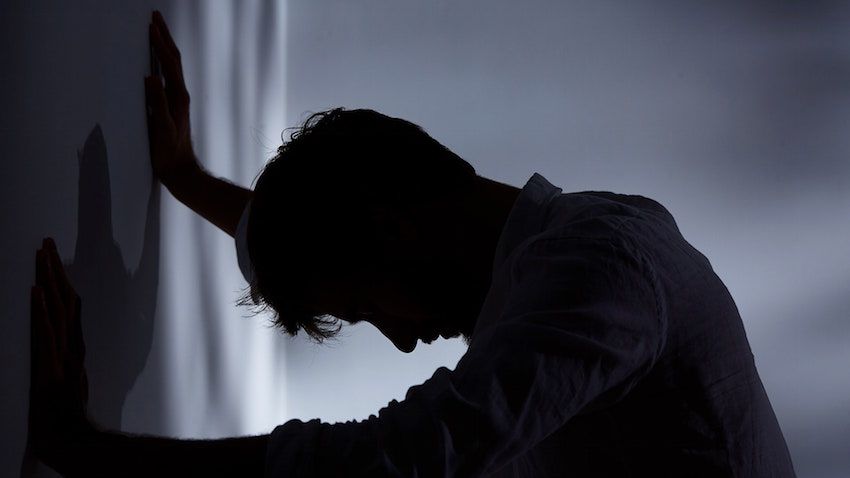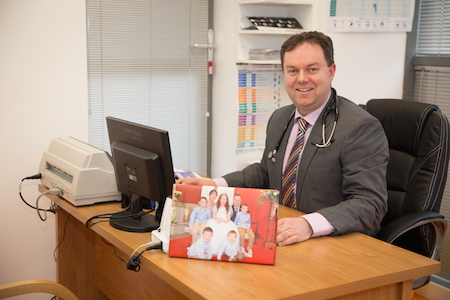In the second of two linked articles, Dr Ciarán Roarty looks at treatments for depression.
Depression is common and unfortunately, some people still perceive a stigma attached to it.
Sometimes people are told to “pull their socks up” or just “snap out of it” but people with depression can’t and these types of remarks are unhelpful.
Most people with depression will actually get better without treatment. However it can take quite a number of months and life can be pretty miserable and distressing waiting for the episode to pass. The average episode last about 6-8 months. Relationships and work can be impacted and sometimes people “self-medicate” with illicit drugs and alcohol. Usually therefore, most people with depression do take help.
Can I do anything for myself?
Don’t try to bottle everything away and fight it all alone. Talk to people close to you. Try not to despair. Most people with depression do recover. Distraction helps – tv and radio do not require much concentration and can be useful if sleeping at night is an issue. Try not to drink too much alcohol as the immediate effect may seem helpful but excessive drinking makes the situation worse in the long run and interferes with assessment and treatment. Try to eat regularly and well, even if your appetite is poor. Avoid major life decisions while depressed and remember talk to your doctor, particularly if you are having suicidal thoughts. A short period off work may be required (though longer periods can exacerbate your condition as you may dwell on things and brood more). Everyone is different. If you have a specific issue causing your depression talk to your doctor about it. Understanding that your symptoms are due to depression helps.
So what treatments are out there for mild depression?
Personal preference and local availability is the determining factor a lot of the time.
One option that people often find useful is a guided self- help programme. Various pamphlets, books and CDs can help you understand and combat depression based on the concept of cognitive behavioural therapy (CBT). It is best if a trained practitioner eg a doctor guides you through a programme – a bit like homework – and keeps an eye on your progress. Usually, 7 or 8 sessions with your trained practitioner are required over 3 months.
Computer-based CBT have recently become available and are usually supported by a trained practitioner who will monitor your progress over a similar time frame.
Certain areas have group-based CBT where participants find working together in a group set-up beneficial.
What about tablets?
Antidepressant medication is not a recommendation usually for the initial management of mild depression. In certain circumstances however they may be advised. For example, if the patient also has a chronic physical problem, or where there has been moderate to severe depression in the past. Sometimes they are used if mild depression just isn’t resolving after trying other treatments.
What are the treatment options for moderate to severe depression?
Antidepressant medications are commonly used. It must be remembered though that medication cannot alter your actual life circumstances if they are difficult. They will not give you a more fulfilling job or improve your relationship with your other half. However, they usually will improve symptoms of depression such as low mood, difficulty sleeping, reduced concentration etc and this may enable you to function better and deal with your problems with less distress.
Psychological or talking therapy is often used for a period of 3 to 5 months. It is often combined with medication as both together can have optimal results. Weekly sessions usually last about an hour. Cognitive Behavioural Therapy (CBT) focuses on the fact that certain ways of thinking can trigger or exacerbate certain mental health conditions such as depression. Other types of therapy are also sometimes used. Interpersonal therapy (IBT) looks at personal relationships and how they affect your mood. There are others also but local availability can be a limiting factor.
Is exercise any help?
While there are conflicting reviews, most agree that exercise seems to help lift a depressed person’s mood and help combat depression. Remember it is also regarded a positive thing for your health in general.
I’ve heard of St John’s Wort. Is it any good?
This is a herbal antidepressant that was popular for a while. It is not currently recommended as it is not clear how well it works and side effects sometimes occur. It can also interfere with other prescribed medications ( eg Warfarin, oral contraceptives, epilepsy medication and some heart medications) and cause problems.
The good news is that research is ongoing all the time and new treatments may become available.
What about the future?
A once-off episode of depression is relatively common. Some people can have two or three episodes and are treated each time. However, if you are prone to repeated episodes you may be prescribed medication long term and referred for CBT.
The above information is intended as advice only and should you have any concerns please contact your own Doctor.
Other useful contacts include:
The Samaritans 01116123
Aware 1800804848
Pieta House 1800247247
www.turn2me.ie
Grow 1890474474
bodywhys 012107906
Irish Association for Counselling and Psychotherapy 012303536
www.shine.ie
Childline 1800666666
Parentline 1890927277
Womens Aid 1800341900
LGBT Ireland 1890929539
www.mentalhealthireland.ie
Dr Ciarán Roarty MB, BCh BAO MICGP DRCOG Grad. Cert. Obst. Ultrasound
is a full-time GP at Scally McDaid Roarty Medical Practice , Scally Place, Letterkenny, Tel 0749164111
www.scallys.ie







